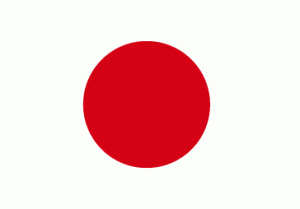Japan has stepped up imports of Libyan and other African crudes as it strives to ensure stable supply in the aftermath of recent events that has thrown its supply-demand equilibrium off balance, industry sources said.
The world's third largest economy, which depends on the Middle East for over 80% of its oil needs and Russia and Asia for its sweet crudes and direct-burning grades at power plants, found itself in a fix after last year's earthquake crippled its nuclear output and forced it to import more direct-burning crudes and fuel oil for power generation.
"After the earthquake, Japan really needs low sulfur crude, so they have to diversify. [Apart from Libya], they have also been exploring West African crudes. They're taking in many more grades than before," said a trader.
Japan was dealt a second blow from the loss of Sudanese Nile Blend crude in January -- a direct burning crude for its power plants.
South Sudan shut down its oil production, estimated at 350,000 b/d, to stop Sudan from seizing its oil and reselling to the market.
The cross-fire in Sudan rose a notch last week after South Sudan seized Heglig from Khartoum and shut down oil production at the disputed zone.
Sudan was the second-biggest supplier of sweet crudes to Japan after Indonesia, before the latest border dispute erupted.
"[Japan's] supply-demand was quite balanced. They were also too dependent on regional sweet crudes. But now regional grades are very expensive," said a trader.
Japan imported 284,000 barrels of Libyan Abu Attifel in January, its first import of Libyan crude since the end of the civil war in 2011, data from Japan's Ministry of Economy, Trade and Industry showed.
The resumption of Libyan exports has raised the supply of sweet crudes in the Atlantic Basin, which, coupled with the closure of refineries in the US and Europe, has flushed the market with supplies and led to better economics for Asian refiners to import these grades, traders said.
Libyan crude production has risen to 1.45 million b/d, shy of the 1.7 million b/d pre-war output levels, according to an earlier Platts report, citing a Libyan National Oil Company official.
AFRICA BECOMES SECOND BIGGEST SUPPLIER OF SWEET CRUDE TO JAPAN
Africa in February rose to become the second-biggest supplier of sweet crudes to Japan after Russia, knocking traditional sweet crude kingpin Indonesia to the third place at 4.42 million barrels, data from Japan's METI showed.
A year ago, before the March 2011 earthquake, Africa was ranked seventh among Japan's sweet crude suppliers.
Russia was the top supplier of sweet crudes at 4.67 million barrels, followed by Indonesia, while imports from Africa were only at 568,000 barrels in February 2011.
Rabi Light and Rabi Blend from Gabon -- light, low-sulfur streams good for direct burning -- made up 60% of Japan's purchases from Africa in February 2012. Shell has been selling Rabi Blend to Japan, and bought alternative regional sweet crudes that drove prices in the region even higher.
Indonesian Minas -- the traditional benchmark for regional sweet grades -- is already being bid at a premium close to $10/b above ICE Brent futures, FOB Dumai, on the Platts market on close assessment process.
The rest was made up by oil from South Sudan, seized and resold by Sudan, and Angola.
Libyan and West African crudes have become more appealing to Japanese refiners of late because an abundant supply created by a dearth of US demand and rising Libyan exports made them much cheaper compared with Southeast sweet crudes.
At least two Suexmaxes laden with Libyan crude were due to arrive in Japan in April. The crudes were traded at Dated Brent plus $8-9/barrel after factoring in freight, a trader said.
Trading houses like Itochu, Glencore, Vitol have term contracts with Libya to supply to Asian refiners including in Japan, India and Indonesia, market sources said.
In Japan, refineries like JX, Tonen General, Taiyo Oil, Petrobras' Okinawa refinery Nansei Seiyu can process Libyan crude.
The African crude purchases, however, do not have any direct relation to the tightening global sanctions against Iran, even as news broke of Turkey replacing Iranian barrels with Libyan cargoes, traders said.
"I don't think Japan is using Libyan crudes to replace Iranian oil," said a trader, adding that the quality is very different.
Iranian barrels are sulfurous, or sour, while Libyan crudes are sweet. Grades such as El Sharara, Amna and Abu Attifel contain less than 0.2% of sulfur. But Japan's cutback on Iranian imports due to Western pressure has underscored the country's need to diversify and seek alternative supplies, sources said.
JAPAN EYES LIBYAN CRUDES FOR DIRECT-BURNING
Apart from refining, Japan is also eyeing Libyan grades such as Amna for direct-burning at power utilities. "We hope to replace Nile Blend with some Libyan crudes for direct burning, said a Japanese source familiar with the matter.
Amna is a light, low sulfur crude with an API of 37.1 and 0.17% sulfur content.
"We do not have big demand for burning crudes in the second quarter so we can manage without Sudanese crude. But we have to prepare to find alternatives before Q3," said the source, adding that Japan has already submitted a proposal to use Libyan crude for burning.
"It's not fully approved," he said.
Market sources are skeptical as to whether Japan can obtain the approval to use Libyan crudes for direct burning by July as the process typically takes many months.
The third quarter is the peak demand season for direct burning crudes in Japan, as the country enters summer and demand for air-conditioning outstrips heating demand in winter.
The world's third biggest oil importer is expected to buy more Rabi crudes from Gabon and other direct-burning crudes, to tide over its supply crunch in the third quarter, sources said.
(Source: Platts)





